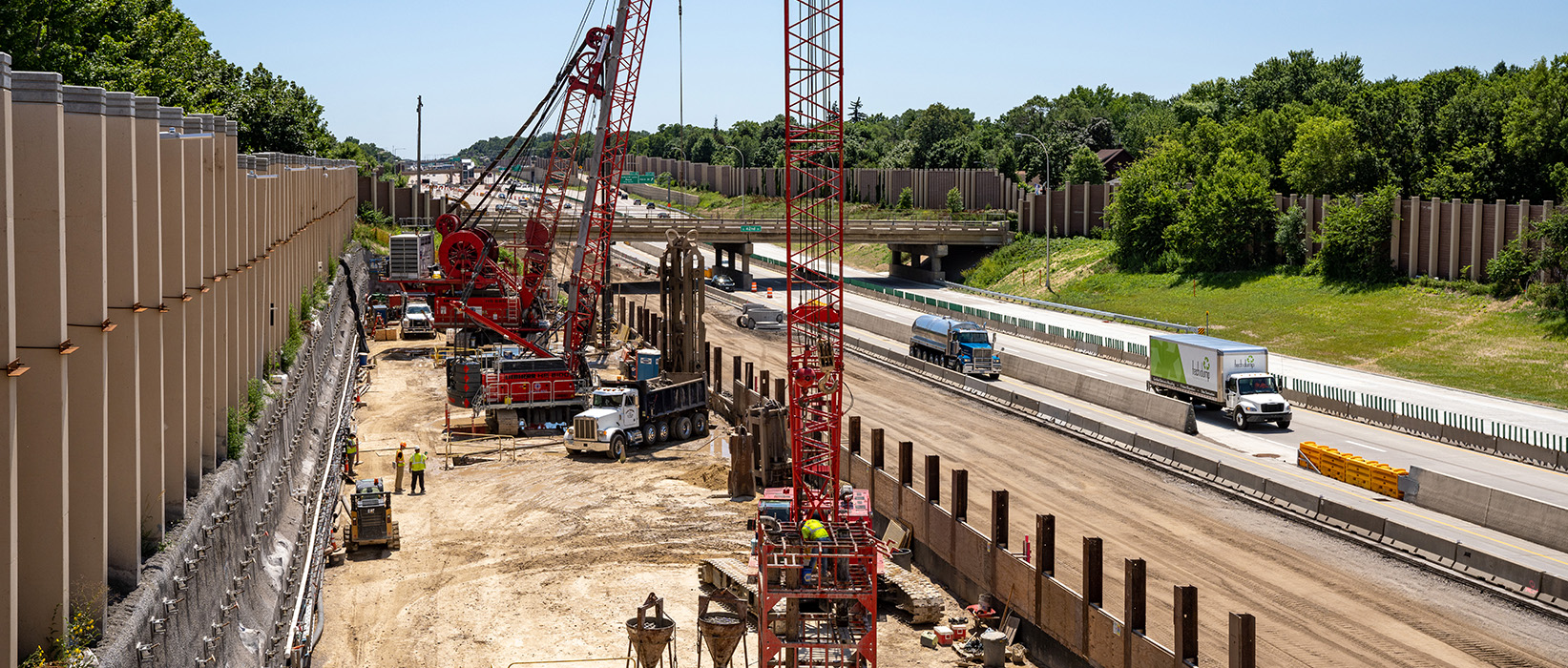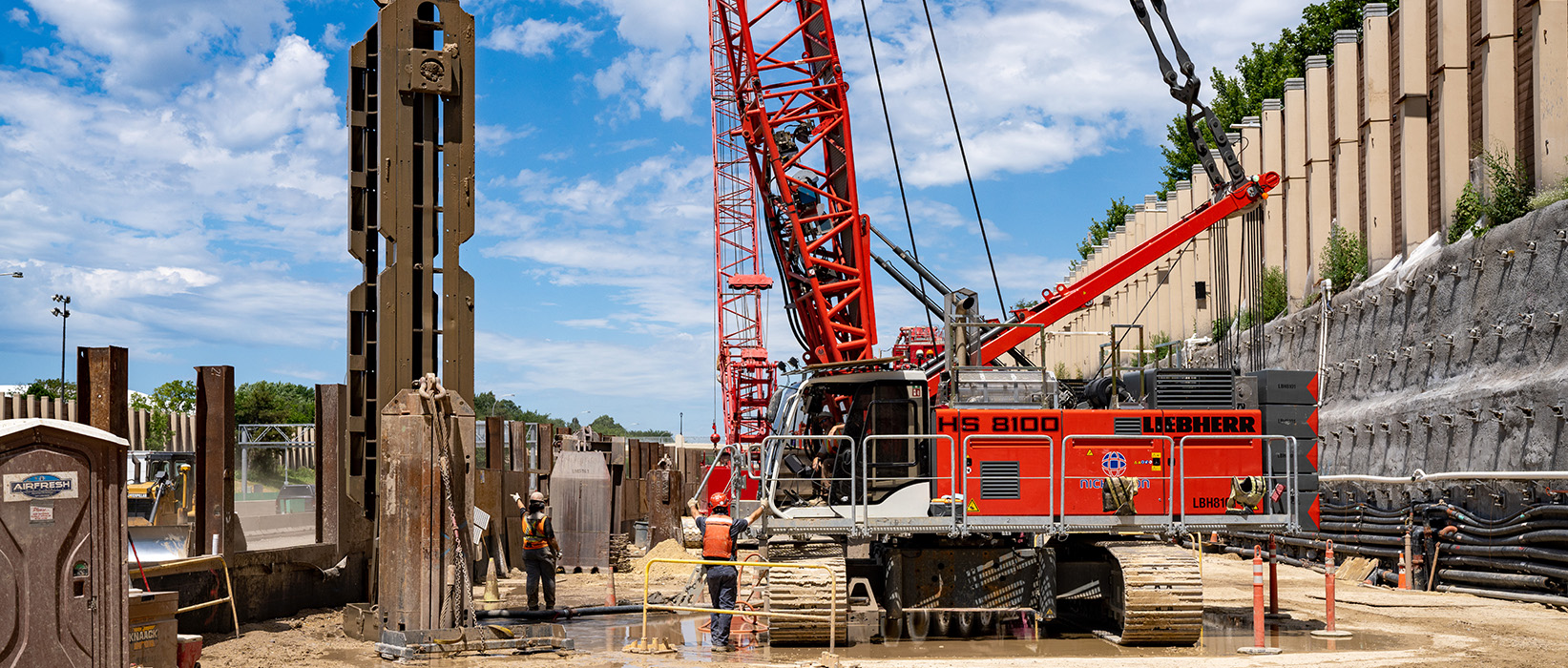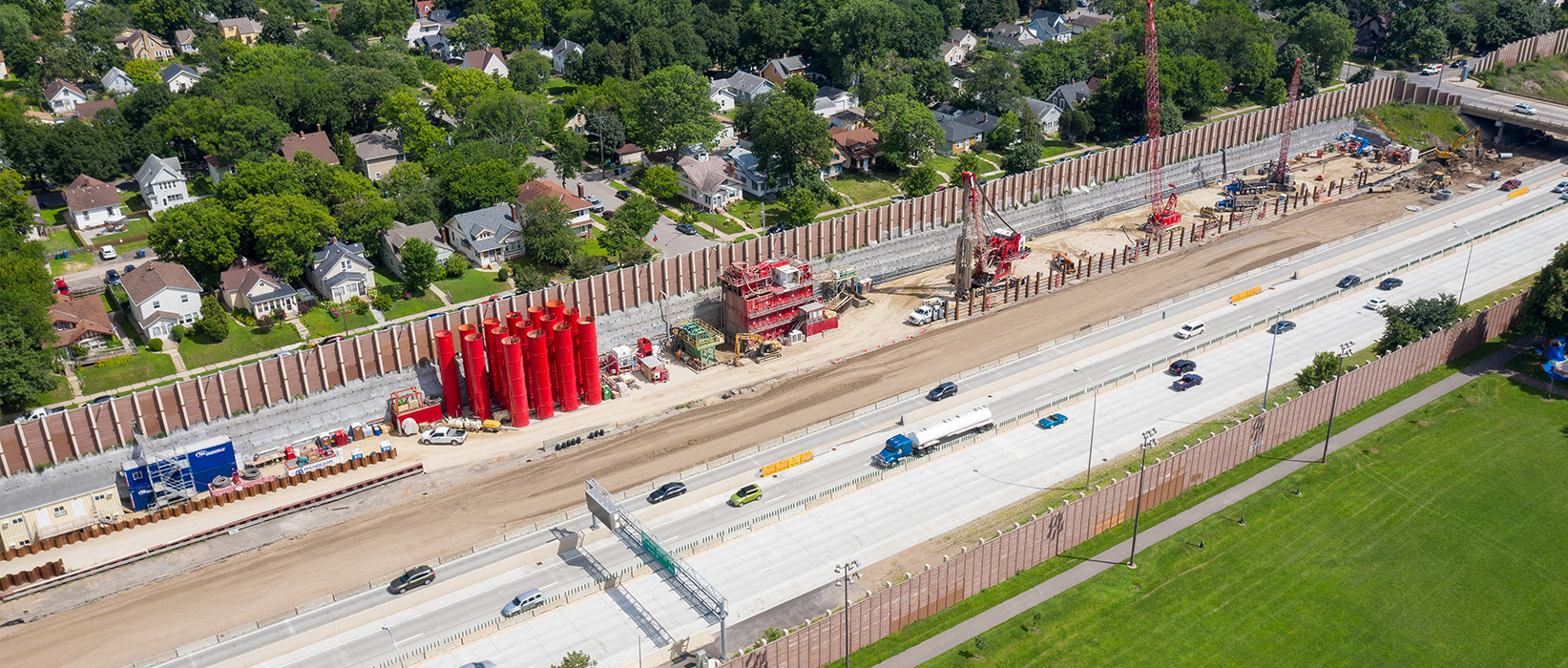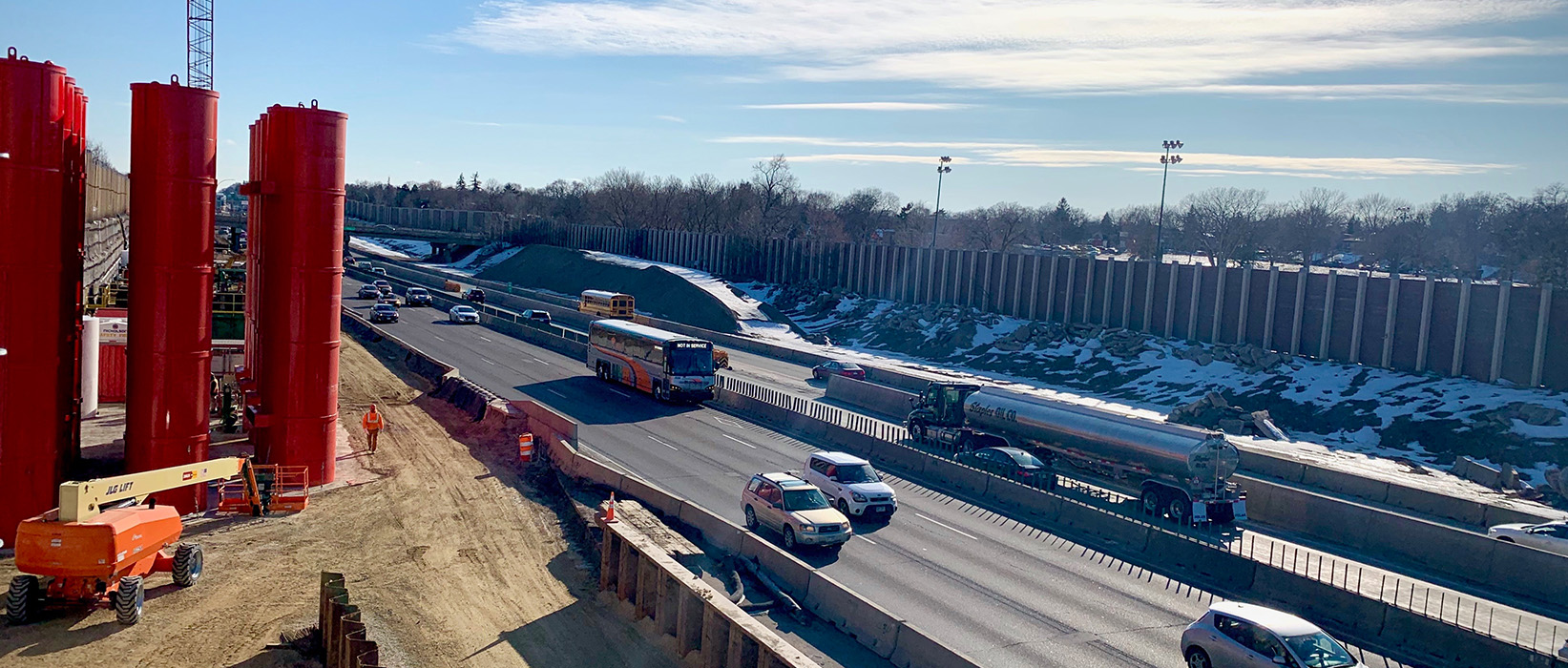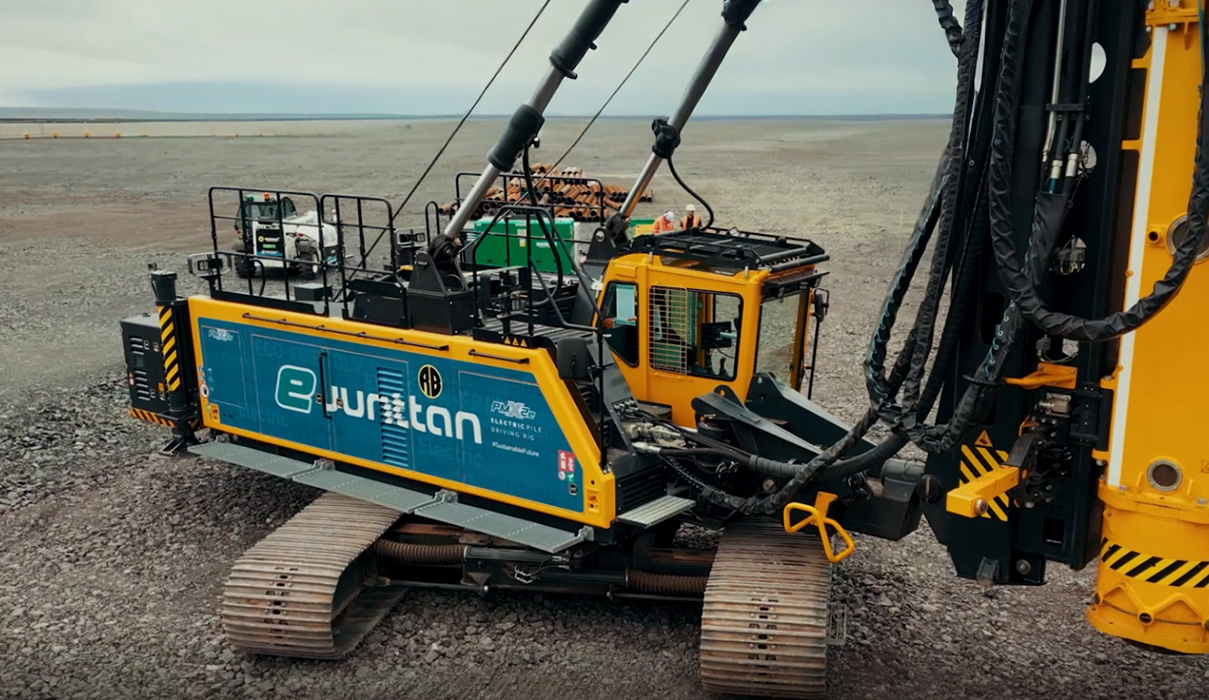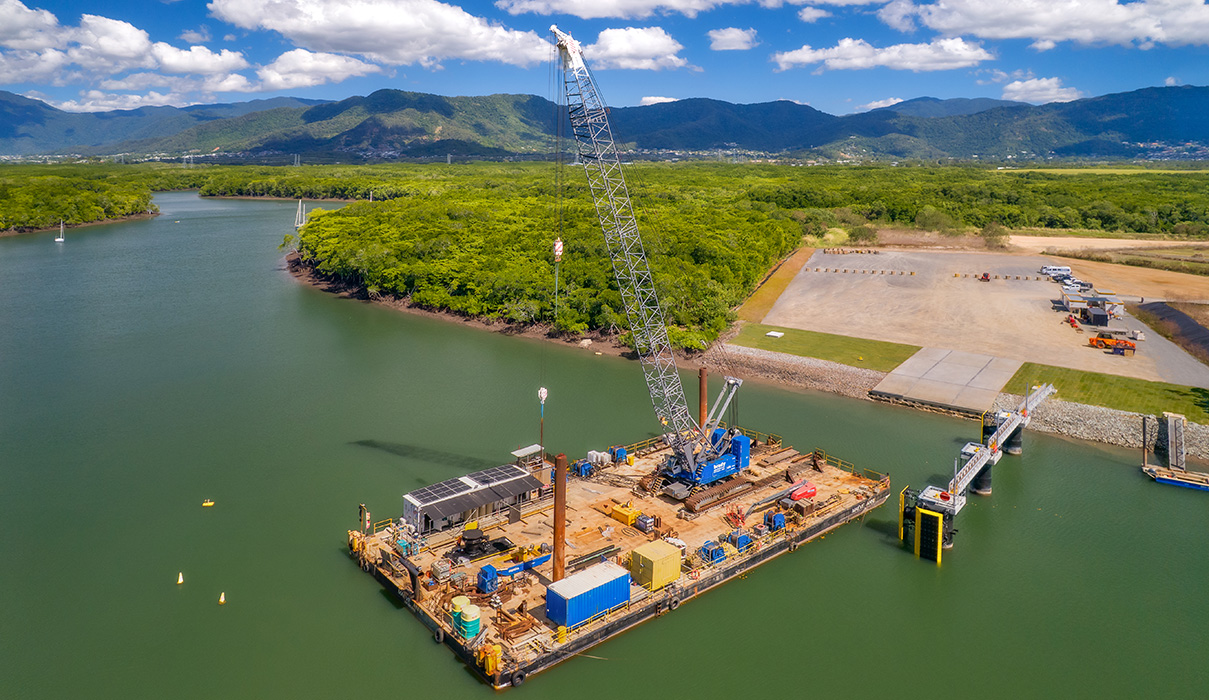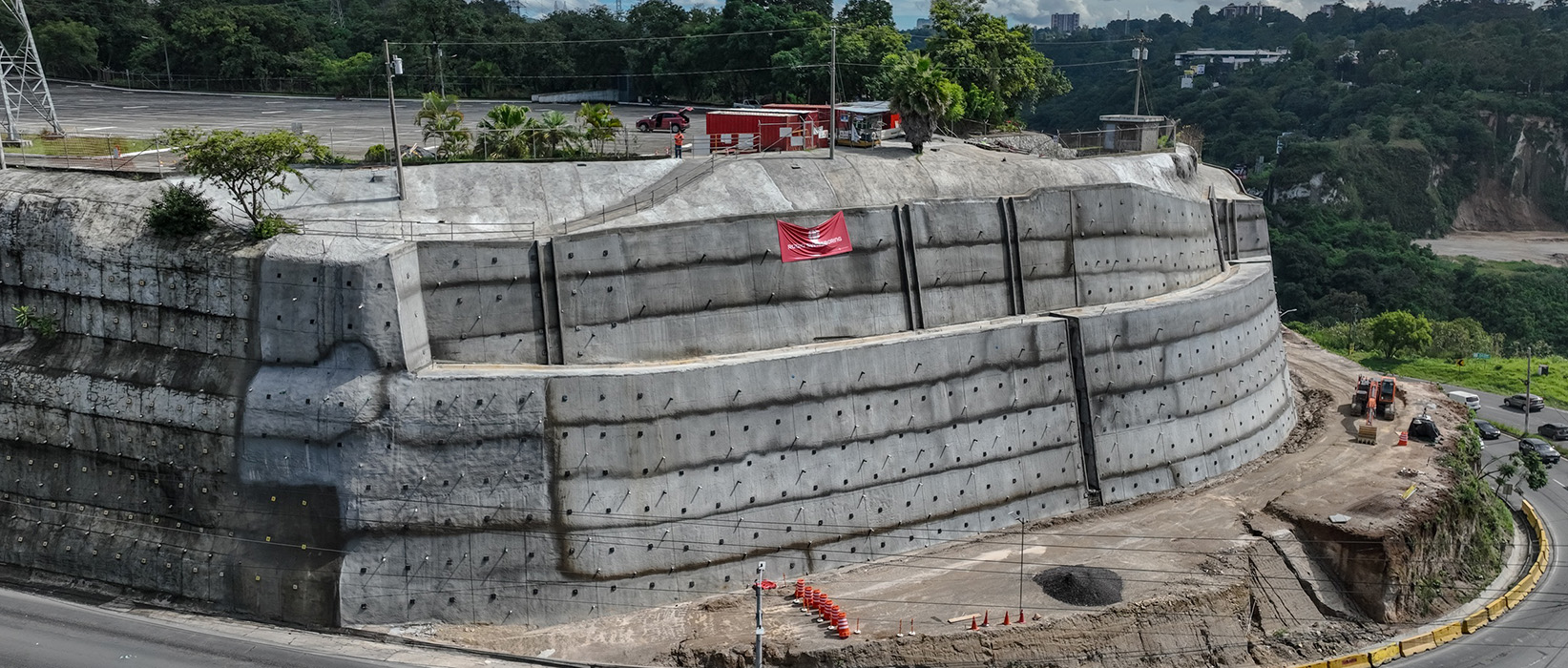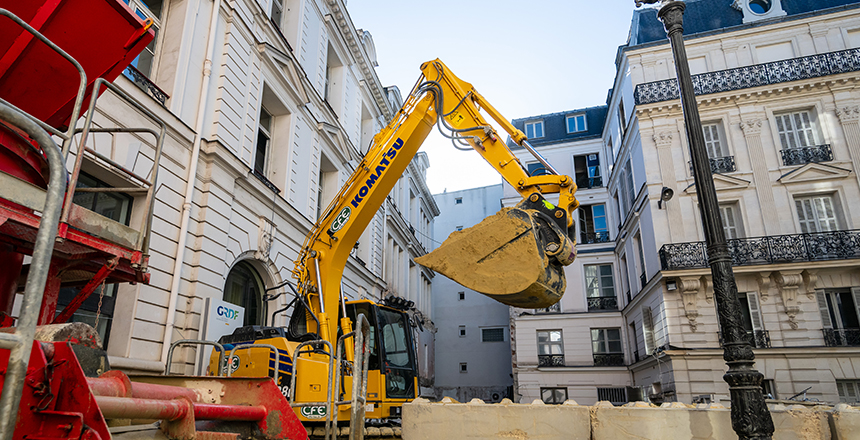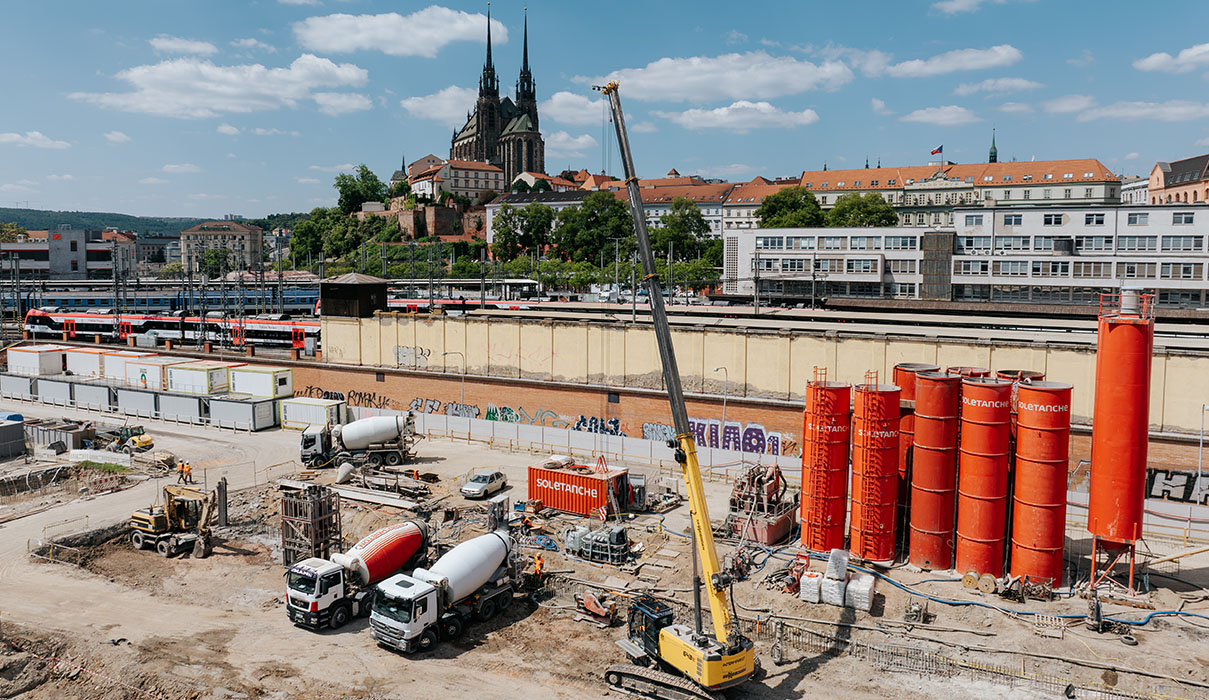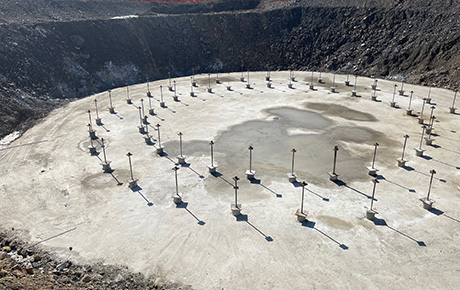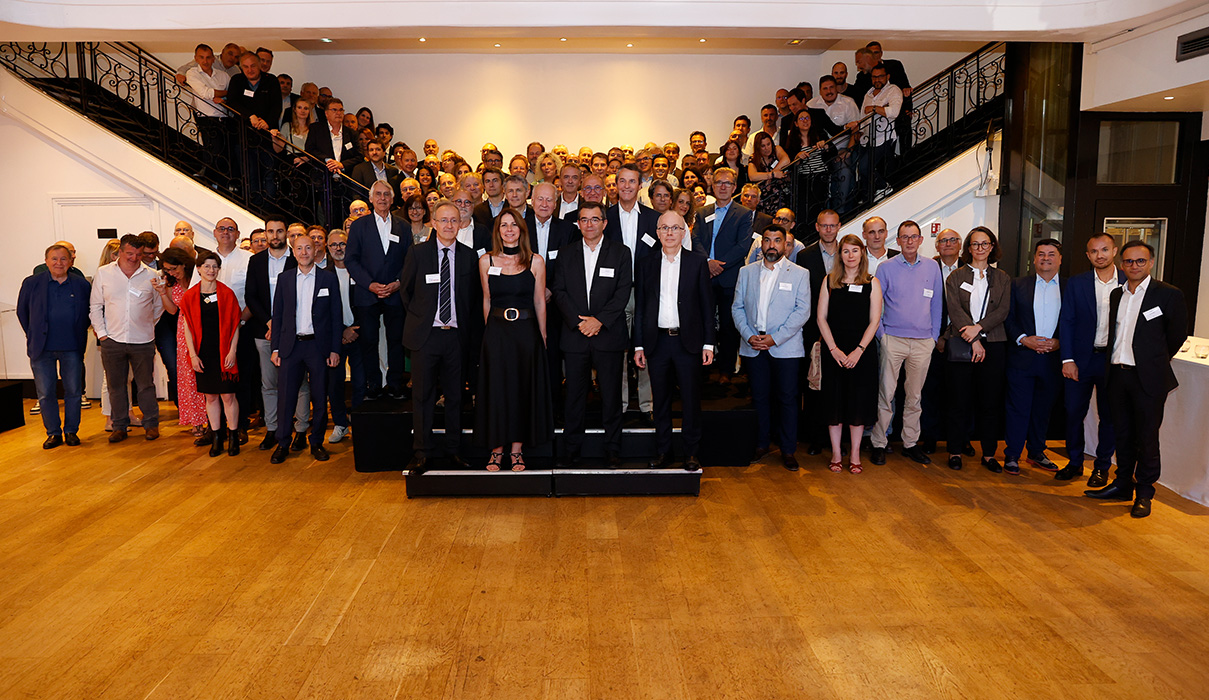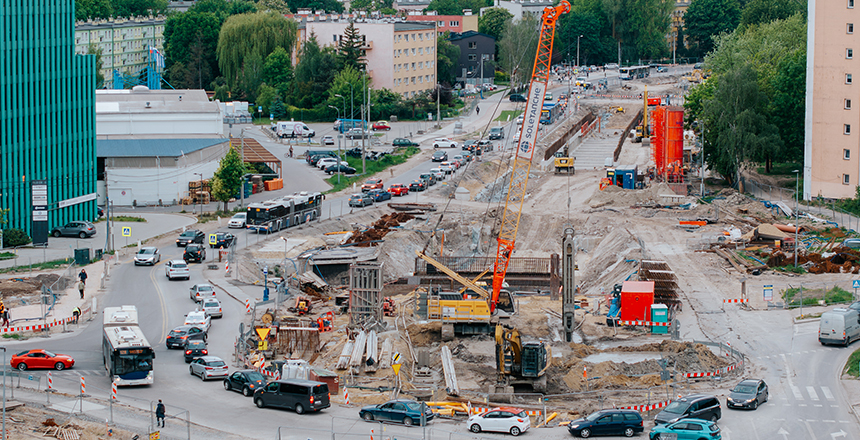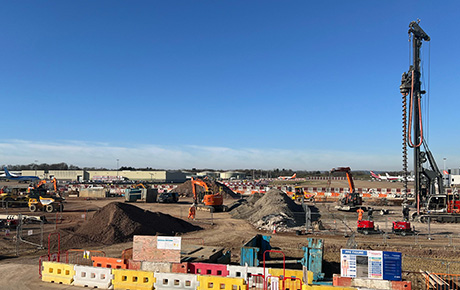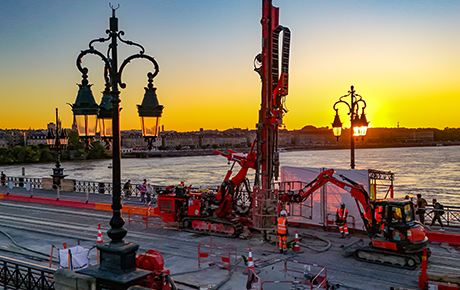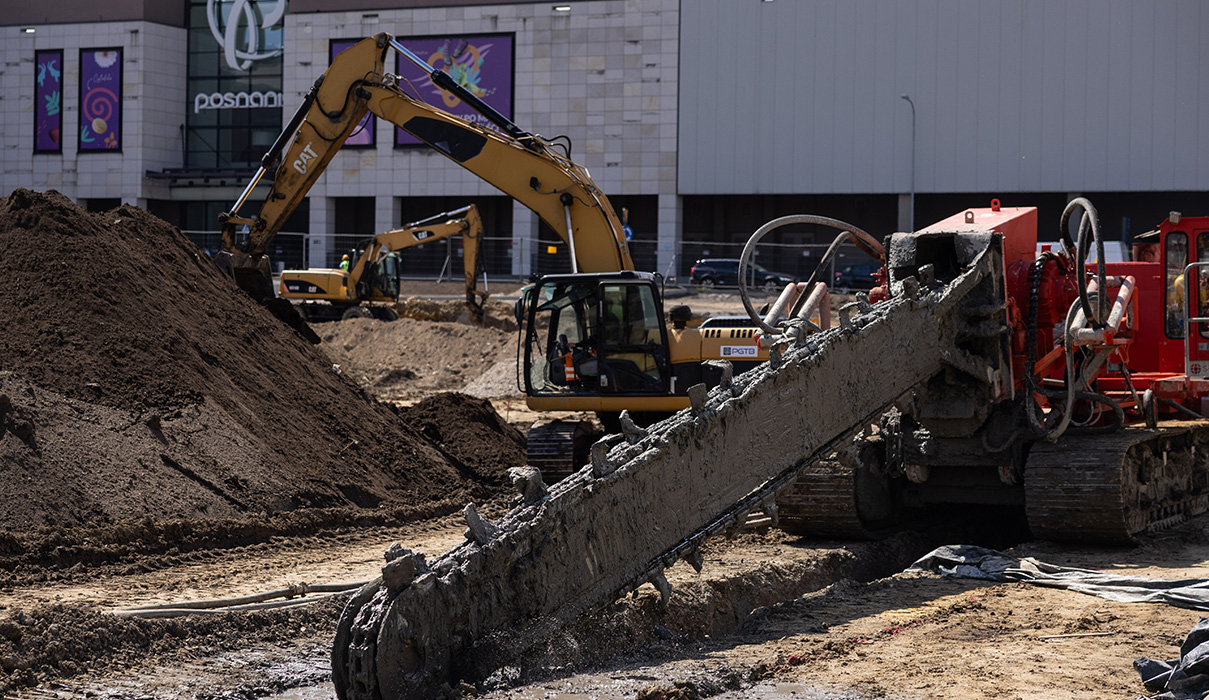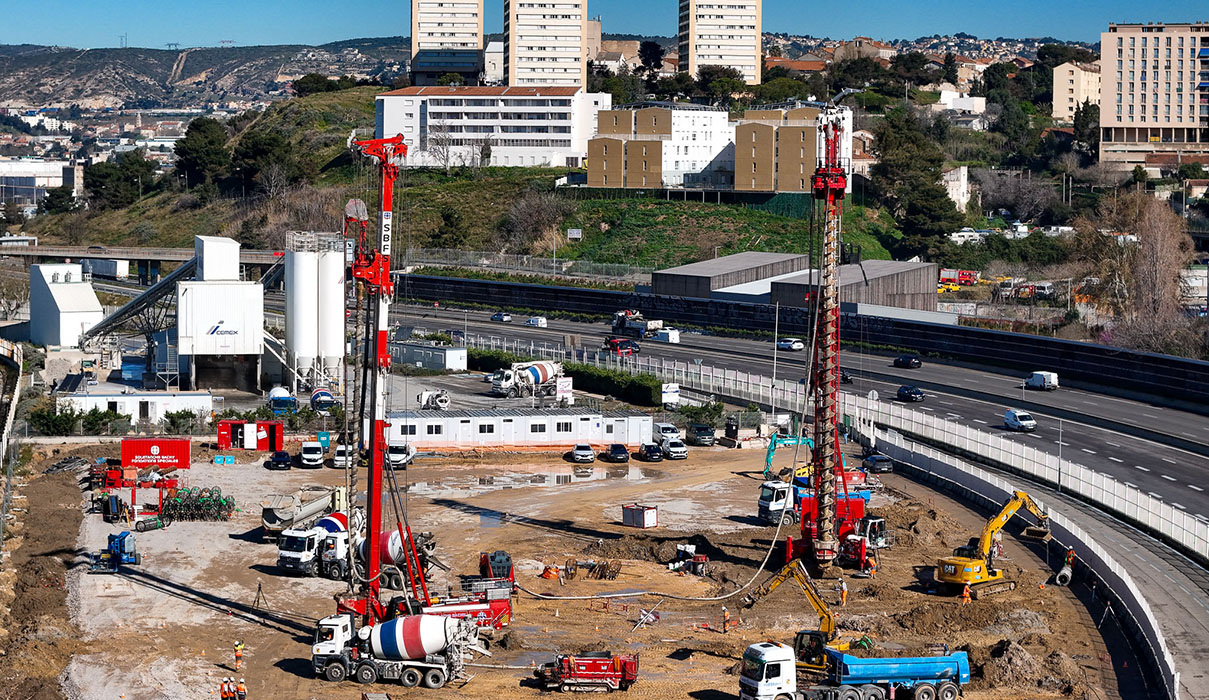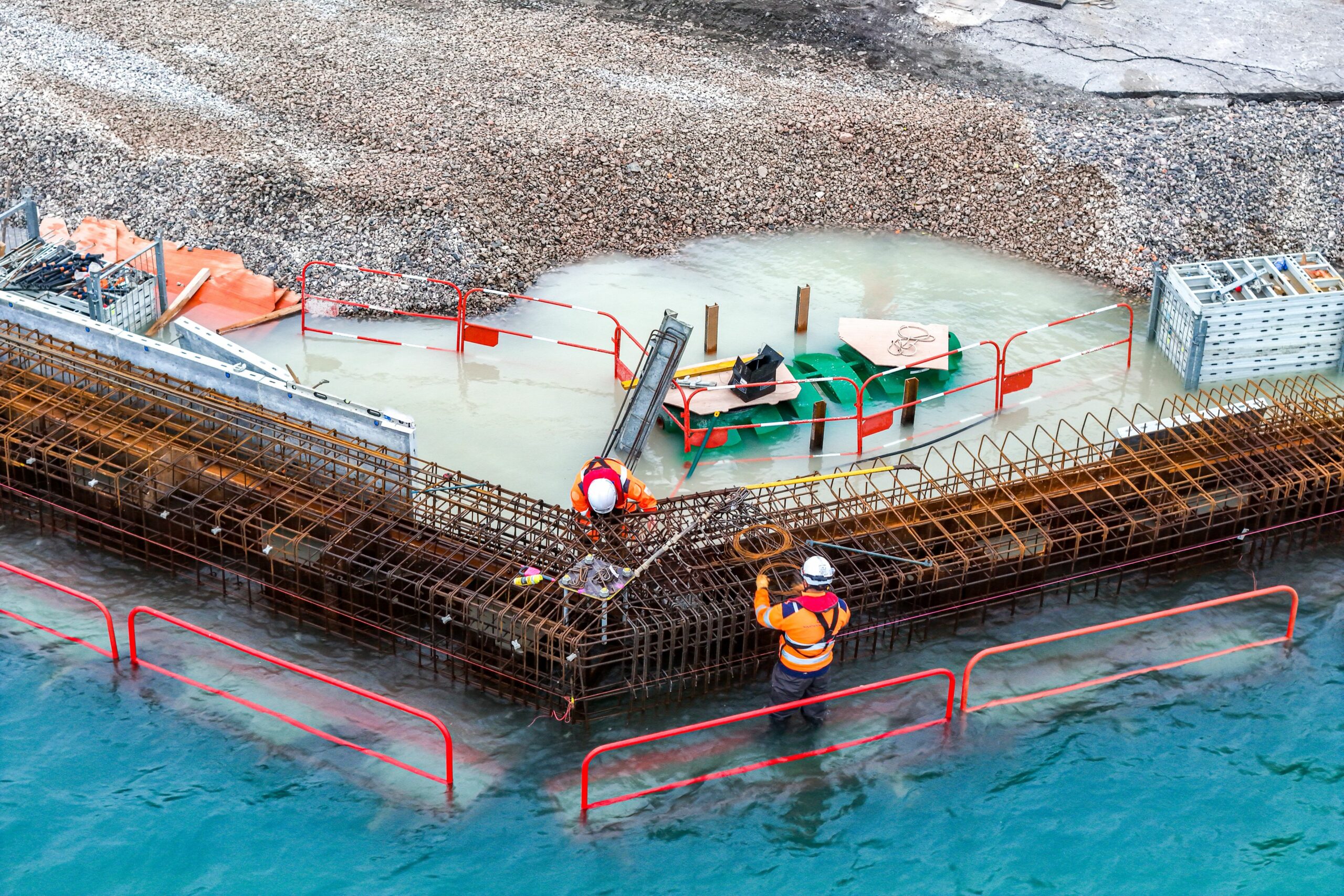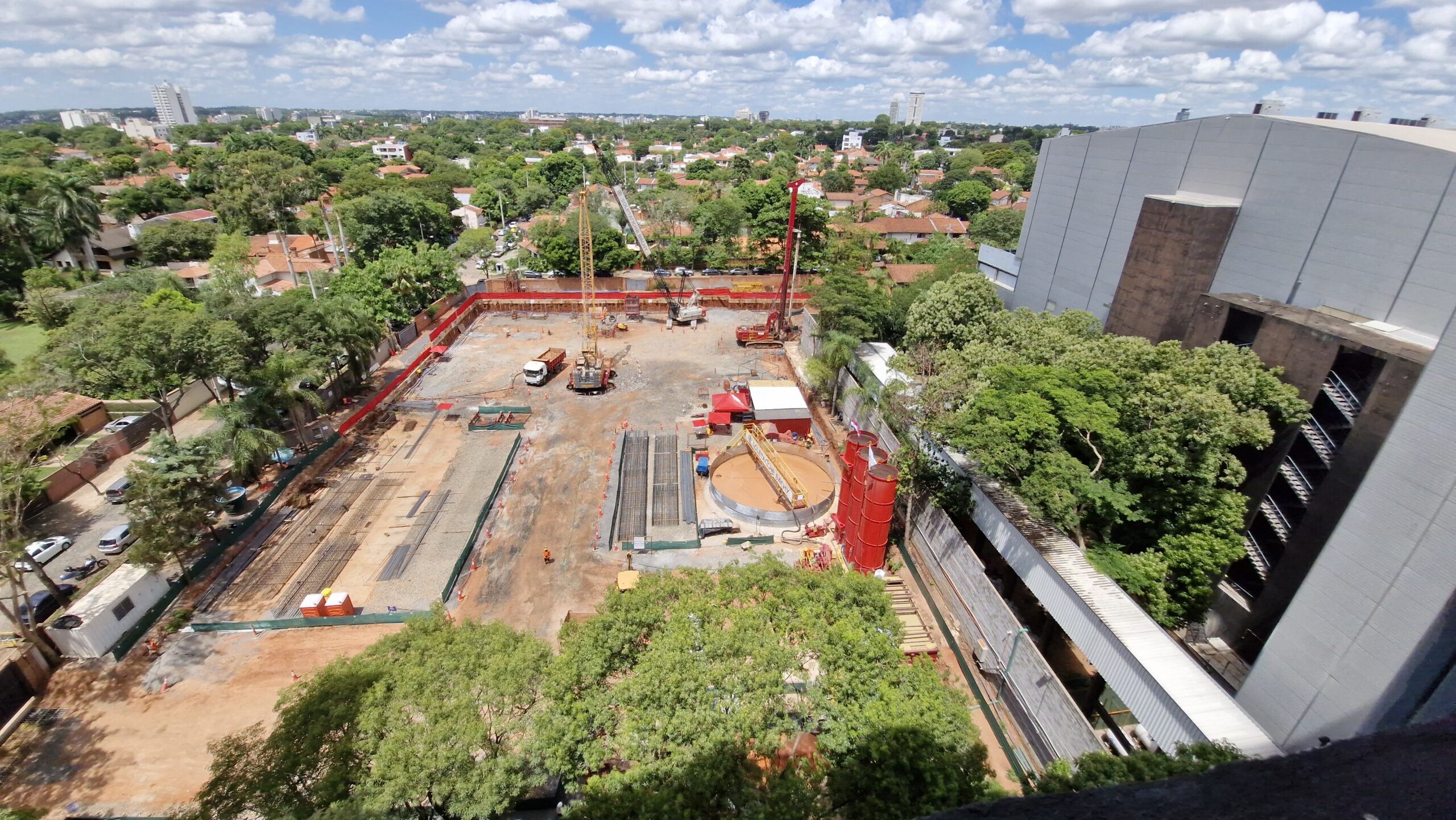October 29th, 2021
Soletanche Bachy brings its expertise to water and sewerage projects | Part 3: Rainwater management
Managing rainwater is essential in a collective water and sewerage network, particularly in urban areas.
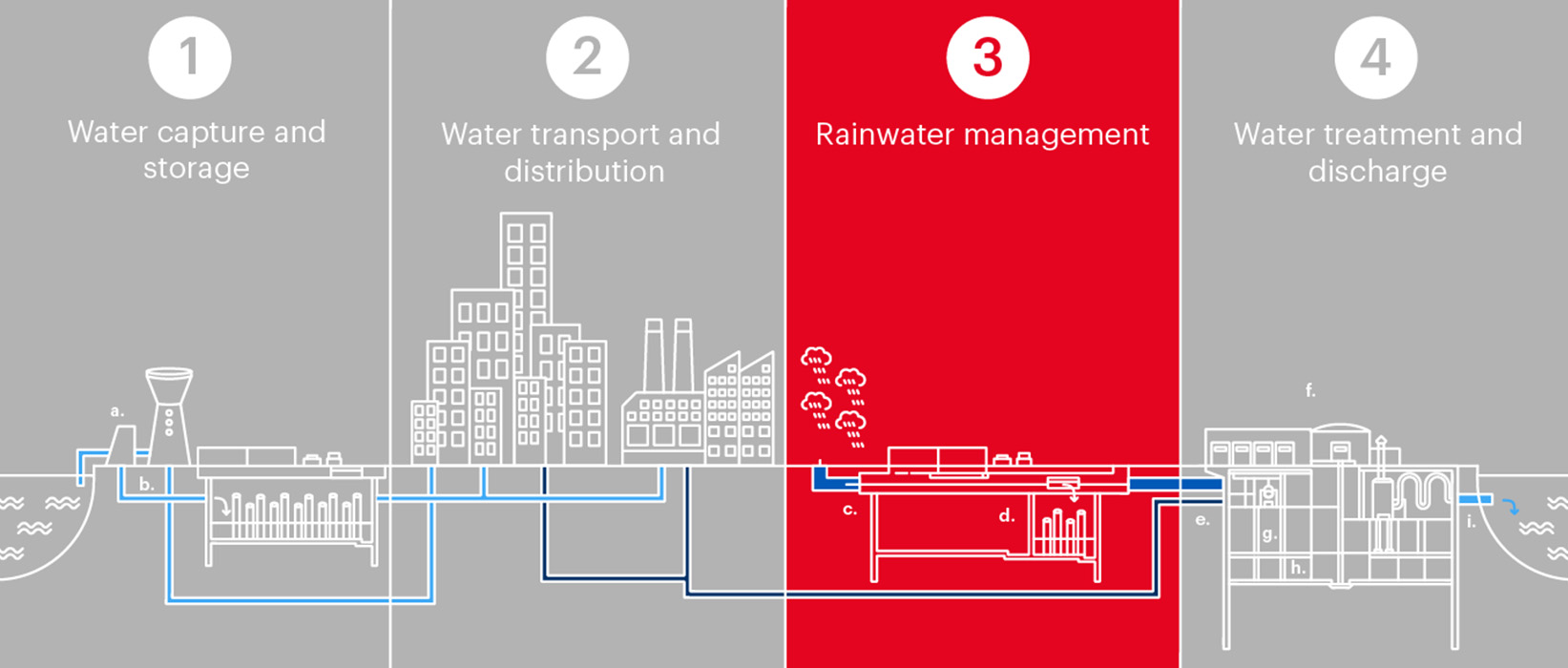
The ground is impermeable and heavy rain can cause flooding. The first rain to fall becomes polluted when it comes into contact with the ground or buildings. It can also saturate existing infrastructure, in which case it overflows into watercourses and causes pollution. Local authorities build storm basins to address these environmental problems.
In Minneapolis, in the United States, the interstate highway I35W has a tumultuous history of flooding…
The original 50-year-old system of tunnels was designed to drain rainwater from the highway and surrounding districts. A series of urban development projects in this 12.5 square kilometre drainage area then increased the volume of water that needed to be handled by the storage tunnels.
A rainwater storage basin project was therefore developed to avoid the risk of flooding, its main objective being the construction of a basin that could contain flooding in the event of a 24-hour rain event with a 10-year recurrence interval!
To achieve this, six inter-connected diaphragm wall wells (14m in diameter and 34.5m deep with a 1.2m-thick wall) will eventually be built by Nicholson Construction, a Soletanche Bachy subsidiary in the USA, along with a pumping station to evacuate water and control the risk of flooding along I35W.
In France, the Jenner basin in Le Havre, in the centre of a roundabout
The Jenner basin completes the city’s flood defence programme, along with the Demidoff basin and the Lesvesque basin also built by the Soletanche Bachy France teams.
The project included the construction of the circular underground storage basin, involving a 50m-diameter and 35m-deep diaphragm wall. Once the earthworks for the basin and scraping of the diaphragm wall had been completed, 520 micropiles were installed to a depth of 25m to anchor the raft in the sand. These micropiles were dimensioned by the Soletanche Bachy France design office to bear compressive loads (when the basin is full) as well as tensile loads (from the water table beneath the slab).
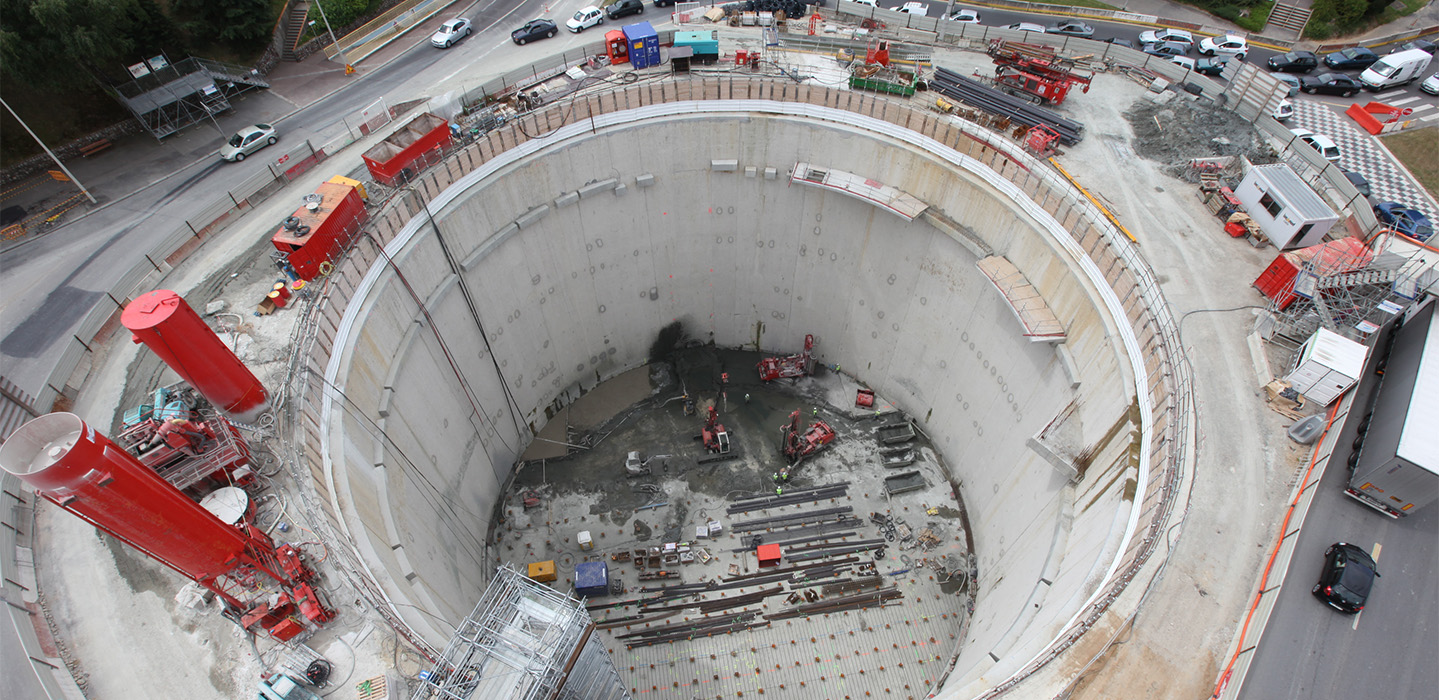
Did you know ?
-
Micropiles are bored piles with a diameter of less than 300mm. Micropiles are generally used to repair existing foundations or reinforce foundations of existing structures, since micropile driving and/or boring machines are light and compact, allowing work to be carried out within the existing structure.
-
A slab is a continuous load-bearing concrete slab that provides a stable base for the entire construction.
Expertise to support water and sewerage projects
Via our subsidiaries all around the world with expertise in foundations and soil technologies, Soletanche Bachy is involved at every stage of water management, through the construction, repair and maintenance of water distribution structures and the sanitation network. These can be delivered “turnkey”, from the design and execution of the foundations to the civil engineering works and delivery.
